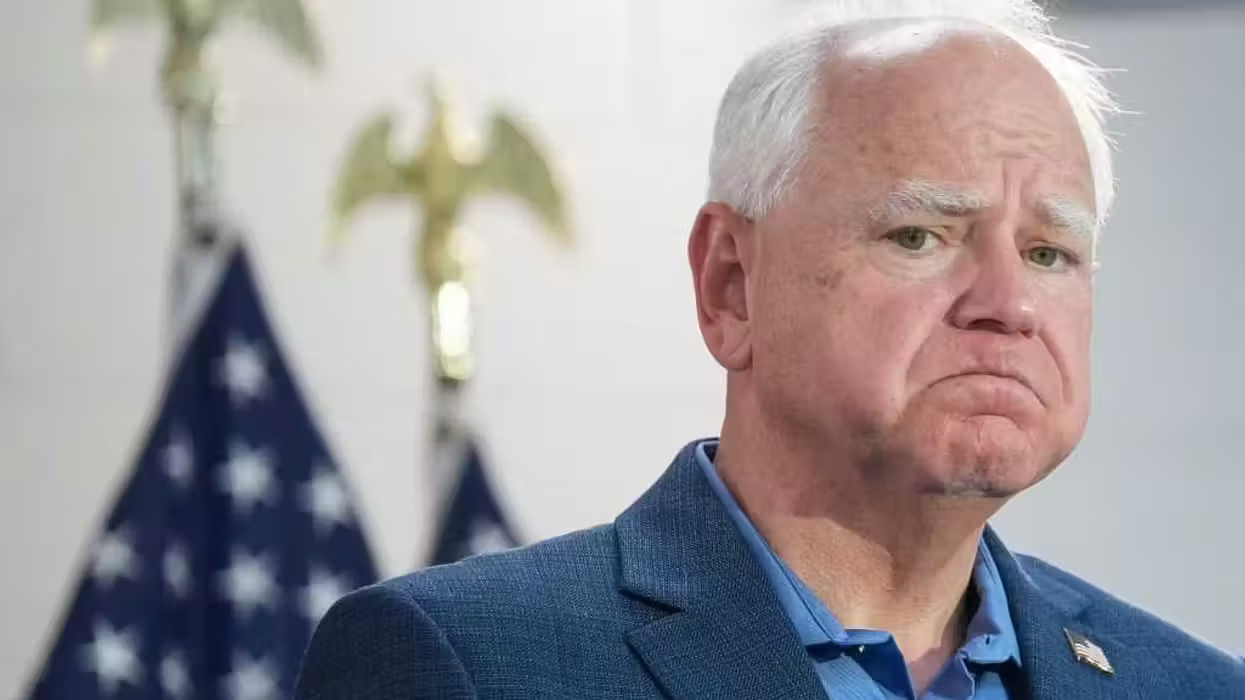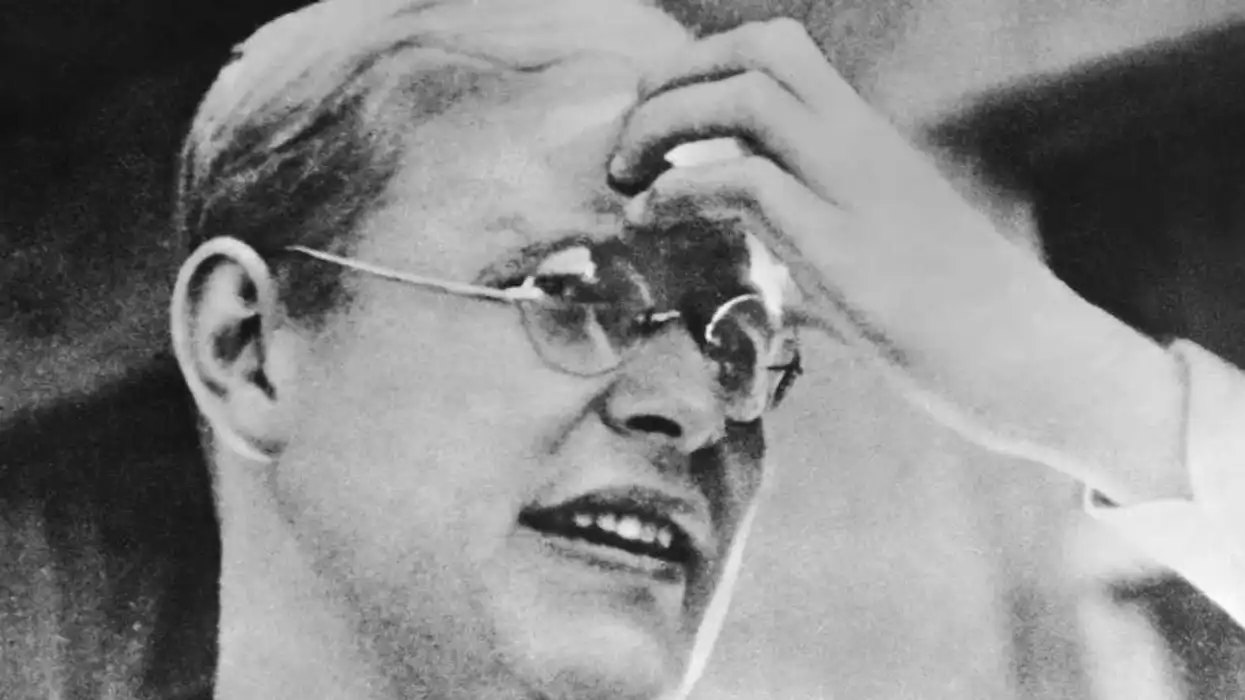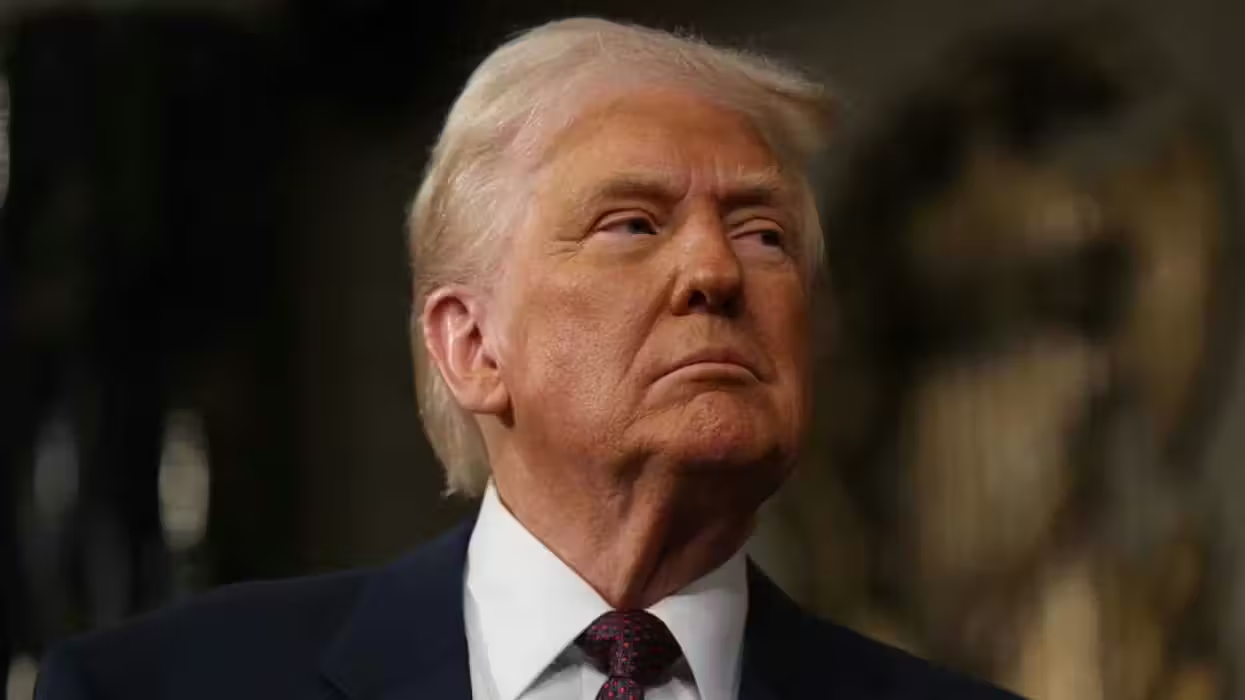
© 2026 Blaze Media LLC. All rights reserved.
Could a Texas City's Proposed Ordinance Ban Traditional Marriage Supporters From Local Gov't Posts?
July 25, 2013
"It’s a stifling of free speech."
Proposed changes to a city ordinance in San Antonio, Texas, are capturing attention, mainly because of the addition of some controversial and vague language that critics believe will lead to a crackdown on free speech.
Gay rights activists and select officials in the city are looking to revamp the city's anti-discrimination ordinance to include "sexual orientation" and "sexual identity." So, what does this mean, exactly?
The new text, if adopted, could essentially ban citizens who have shown a bias in these areas from serving on commissions and in local government posts. Meaning: If you oppose homosexuality and have shown that opposition in "word or deed" that you could be precluded from holding these positions.
The goal with these inclusions is to protect the individuals who fall under these categories from discrimination. Already, San Antonio's policy protects people on the basis of race, color, national origin, religion, sex and age and "handicap" (this latter group is also being changed to "disability" in a draft version of the new ordinance).
One News Now calls the new sexual orientation and gender identity language "unprecedented." And according to a report in Biz Pac Review, "The city is looking to update its anti-discrimination policies by adding sexual orientation and gender identity as protected categories, and plans to punish those who speak out against homosexuality."
Naturally, it is the latter portion of this claim that is raising eyebrows. Considering the accusation, some might wonder how rooted it is in truth. So, let's take a look at the text of the proposal -- and at the merits of these claims.
A draft version (read the entire document here) that is circulating provides a section called "Appointed Officials, Boards and Commissions" (Sec. 2-552). It is the text in this area that has caught the most scrutiny.
The first sub-section, which deals with parties being appointed, pledges not to discriminate against individuals based on any of the above categories. But where the free-speech issues come into play is in the "Prior Discriminatory Acts" portion of the text, which says that no person can be appointed to a position if it is found that the individual in question has "engaged in discrimination of demonstrated a bias, by word or deed, against any person, group or organization on the basis of race, color, religion, national origin, sex, sexual orientation, gender identity, veteran status, age or disability."
The questions that arise here are as follows: Are those who have vocally opposed gay marriage or homosexuality then not eligible to be appointed to government committees? Would a pastor, for instance, be banned for having Bible-based, theological views on these issues? What, exactly, does "bias" mean? What about a Catholic who has voiced support for the church's teachings? And these are only some of the many questions.
The next section, too, creates some potential free speech conundrums, as anyone appointed or on a board or commission cannot "demonstrate a bias, by word or deed against any person, group of persons, or organization" on the basis of sexual orientation of gender identity, among other issues.

In addition to mapping out these provisions, the document defines sexual orientation as "an individual’s real or perceived orientation as heterosexual, homosexual, bisexual or asexual." In turn, gender identity is said to mean, "a gender-related identity, appearance, expression or behavior of an individual, regardless of the individual’s assigned sex at birth."
The draft copy that is circulating does provide exemptions for religious organizations when it comes to employment, but the vague nature of the language surrounding free speech for individuals leaves the door open to critique. The document, which is dated June 27, continues to be under review and it is unclear whether a newer version is available.
It seems this proposal is months in the making. In Jan. 2013, the Human Rights Campaign, an LBGTQ rights group, described its work as part of a coalition working to change the non-discrimination language in San Antonio.
"As part of the coalition, HRC will be helping mount a campaign to convince the city council to extend protections to LGBT people in the city," regional director Shelena Williams wrote on the organization's blog at the time. "In 2011, the city council voted to grant domestic partnership benefits to city employees, so they have already taken an important step."
On a separate blog post in May, another regional field director, Karin Quimby, described the events that apparently led to the current proposal:
On May 21, Councilmember Diego Bernal brought forward a council consideration request to the governance committee to amend the city codes to include sexual orientation, gender identity and veteran status as protected categories. Over 100 supporters of fairness and equality filled the chambers. We dramatically outnumbered our opponents who were there somehow thinking that the committee was debating same-sex marriage as they were wearing the familiar stickers claiming: one man + one woman = marriage. But they weren’t the only ones who were confused. Several members of the committee said they needed more time to think about it, apparently not understanding their own initial comments that they oppose discrimination in any form. In the end, 3 of the 5 committee members were not willing to move forward to actually prohibit the discrimination they supposedly oppose.
Bernal has defended the proposal against critique, noting that he is a person of faith who has no interest in hampering free speech.
"You know I’m a person of faith, I have no interest in infringing on the first amendment rights of my church, or my pastor so nothing in here does that and it won’t," Bernal told KENS-TV, noting that this version is only a draft. "There’s always an opportunity to make things tighter, to make things more clear so when you read you know what we’re trying to do, we’re open to all of it."
While proponents claim that the language would offer simple protections that are already afforded to other groups, local pastors are among those concerned with the current draft's language, particularly because they believe it will cut them -- and others who share their views on traditional marriage -- out of the public sphere.
“A religious view: either you have one or you don’t, it is still a religious view -- and if I don’t attain to their view, then I’m out of the picture completely," Pastor Steve Branson of Village Parkway Baptist Church told KHOU-TV. "It’s a stifling of free speech."
Branson isn't alone either. Others share these concerns. TheBlaze reached out to the city attorney's office, making repeated calls for comment and clarification. We have not yet received a response.
The city council will take the issue up on Aug. 2 when it returns from summer hiatus.
Follow Billy Hallowell on Facebook and Twitter. Also, be sure to follow TheBlaze's faith account on Twitter as well.
Other Must-Read Stories:
- Nanny of the Month: Why San Antonio's ordinance might be worse than we think
- Here's One Company That's Sticking With Paula Deen: 'We Feel Terrible for Paula'
- Bible Proposal at Delaware Public High School Sparks Church vs. State Debate
- Are Demons, Possession and Exorcisms Real? Christian Thinkers Offer Theological Views as 'The Conjuring's' Popularity Rages
- Actor Bruce Willis Delivers One of the Most Awkward and Cringe-Worthy Movie Interviews We've Seen
- Did God Really Create the Universe and Mankind?
Want to leave a tip?
We answer to you. Help keep our content free of advertisers and big tech censorship by leaving a tip today.
Want to join the conversation?
Already a subscriber?
Billy Hallowell is a digital TV host and interviewer for Faithwire and CBN News and the co-host of CBN’s "Quick Start Podcast."
Billy Hallowell
Billy Hallowell is a digital TV host and interviewer for Faithwire and CBN News and the co-host of CBN’s "Quick Start Podcast."
more stories
Sign up for the Blaze newsletter
By signing up, you agree to our Privacy Policy and Terms of Use, and agree to receive content that may sometimes include advertisements. You may opt out at any time.
Related Content
© 2026 Blaze Media LLC. All rights reserved.
Get the stories that matter most delivered directly to your inbox.
By signing up, you agree to our Privacy Policy and Terms of Use, and agree to receive content that may sometimes include advertisements. You may opt out at any time.






